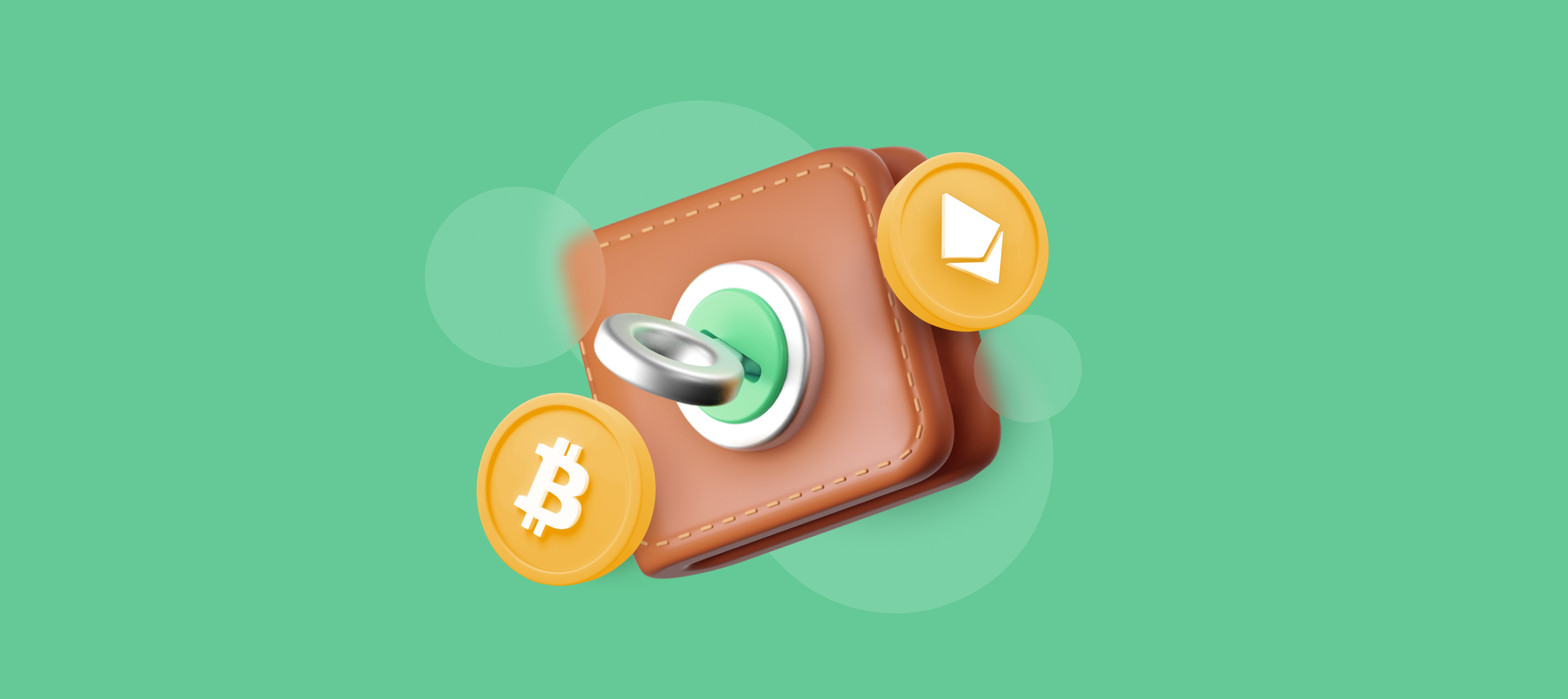Custodial Vs Non-custodial Wallets

This blog post will cover:
- A quick rundown on crypto wallets
- Non-custodial: offering unencumbered control and flexibility
- Custodial: relinquishing control for unmatched convenience
- The final word
If you’re reading this, you’re probably looking into buying some crypto while “buying the dip”.
Maybe you’ve heard a few colleagues talking about the pros and cons of crypto storage technologies, and you just happen to have made your first cryptocurrency purchase at an exchange your friends told you about. Or maybe you’ve heard about hardware crypto wallets and want to purchase one to keep your crypto safe and offline away from scammers and grifters.
While most crypto users generally use both non-custodial and custodial wallets to preside over their daily crypto affairs, some may prefer or use one option more frequently over the other. Let’s go on a deep dive on the two main types of crypto wallets in further detail, and enumerate their main differences for greater clarity.
A quick rundown on crypto wallets
Crypto wallets can be boiled down into two main elements: a public key and a private key. Your public key and wallet address remain visible to everyone, but your private key is like your master password to your wallet – it’s your unique identifier on the blockchain that allows you to sign transactions and connect to blockchain ecosystems and protocols.
Meanwhile, your seed phrase can be seen as a snapshot of your crypto portfolio at a particular time, allowing you to recover your funds should you lose your wallet access for any reason. Not surprisingly, it’s imperative that you take note and remember your passwords, seed phrases, and other important details on an ongoing basis.
Non-custodial: offering unencumbered control and flexibility
You know what experienced crypto enthusiasts say: if it’s not your private keys, it’s not your crypto.
Non-custodial wallets – which, as the name implies, have no intermediaries – give you unencumbered control over your private keys. Since they eliminate the intermediary, that means you have absolute control of your crypto. That said, they are an optimal choice for advanced, security-oriented users that can take on the mantle of being the sole arbiter over their crypto. They are essentially another option for “power” users who want the full experience of managing their financial affairs as they see fit.
This wallet type allows you to directly oversee your transactions, utilize decentralized finance products, access non-fungible tokens and ecosystems, and web3 dapps and protocols. They can be downloaded onto desktop and mobile devices, added as extensions to popular browsers, or bought from hardware wallet manufacturers. However, do be cautious about connecting them to Dapps or protocols that could be used to phish or steal your credentials – or worse, your funds.
Custodial: relinquishing control for unmatched convenience
Custodial crypto wallets are distinguished by entrusting your private keys to an intermediary that will manage them on your behalf. Therefore, they are excellent options for institutions or less tech-savvy or non-native individuals. That’s because you can conveniently buy crypto or recover access in case you lose your exchange password (to a certain extent) with an intermediary running things.
Despite being considerably less secure than its counterpart given the leeway third parties have with your keys, many individuals prefer this type of wallet because of its convenience and reduced burden of responsibility it entails.
Besides centralized exchanges, newer products such as cryptocurrency ETFs are also considered custodial in nature. Such products are oriented towards institutional clients aiming to raise their portfolio exposure without taking on the burden of managing security and the inner workings of web3 and blockchain technology in a direct fashion.

The final word
There’s absolutely no reason to overthink: custodial or non-custodial, the right wallet for you all boils down to your preferences. You don’t have to be firmly on one side over the other or go into console warring, as the term goes.
If you feel you’re up to the increased responsibility that owning a non-custodial wallet option entails, then by all means go for it. Moreover, if you wish to directly participate in DeFi or web3, then this option is definitely most suited.
Now, if you prefer to leave all your worries and entrust your assets to an intermediary doing things on your behalf and not have to deal with the tedium of storing your passwords or private keys, then a custodial wallet might just be right up your area.
You don’t have to use just one; you can use either interchangeably as frequently as you wish. Most crypto investors regularly alternate between wallet options freely. It’s not so different from opting to take public transportation over bringing a car to work – it’s all a matter of whether you want to drive, or want (and entrust) someone else to do it for you.
Want to know more about crypto wallets? Click here to check out the related article.

